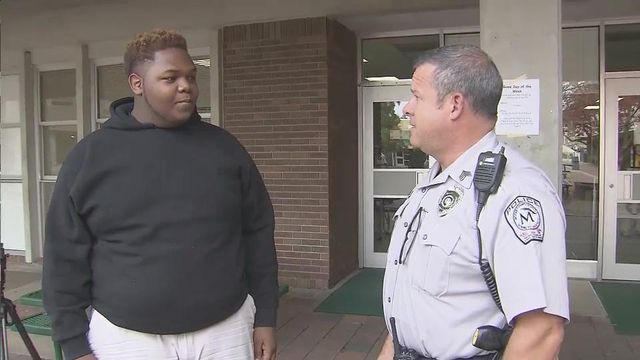Officers work to build rapport with Moore County students
After video of a violent interaction between a South Carolina deputy and a student surfaced on social media, parents began asking questions about officers in the schools. But officials in Moore County say the officers in their schools build rapport with students.
Posted — UpdatedMoore County is one of a few school systems in the state to have their own police department. The dozen officers that make up the Moore County Schools Police Department are responsible for policing the district's 23 schools.
Officers say they work on building rapport with students in an effort to eliminate problems before they get out of hand.
"It is always better to be prepared for things you walk into, and we're able to do that with our officers," said Chief Sammy McNeill.
McNeill used to be a Moore County sheriff's deputy. He said all of the officers in the schools receive specialized training in handing student issues.
"Emphasizing on school safety issues makes a big difference when your officers are trained to come into a classroom and there is a kid who is refusing to leave," he said.
Sgt. Steve Clark said officers are trained to do things in a different way - a way that is much different then the video from a South Carolina classroom that went viral this week.
"Policy says remove the students out of the classroom who are not being disruptive, remove the teacher, ask him to leave. Be present with the administrators and you, as the police officer only, give him another chance," Clark said.
Clark says the second chance to obey without an audience of classmates usually works.
Bob Christaina, a school administrator, said the school-based police department works for a number of reasons.
"The students know who they are. They call them by name," he said. "They know their classes. They give them help with any issues they have. School issues, instructional issues, to things that might be going on at home, or in the community, or within their own friendship groups, or even at home."
• Credits
Copyright 2024 by Capitol Broadcasting Company. All rights reserved. This material may not be published, broadcast, rewritten or redistributed.





